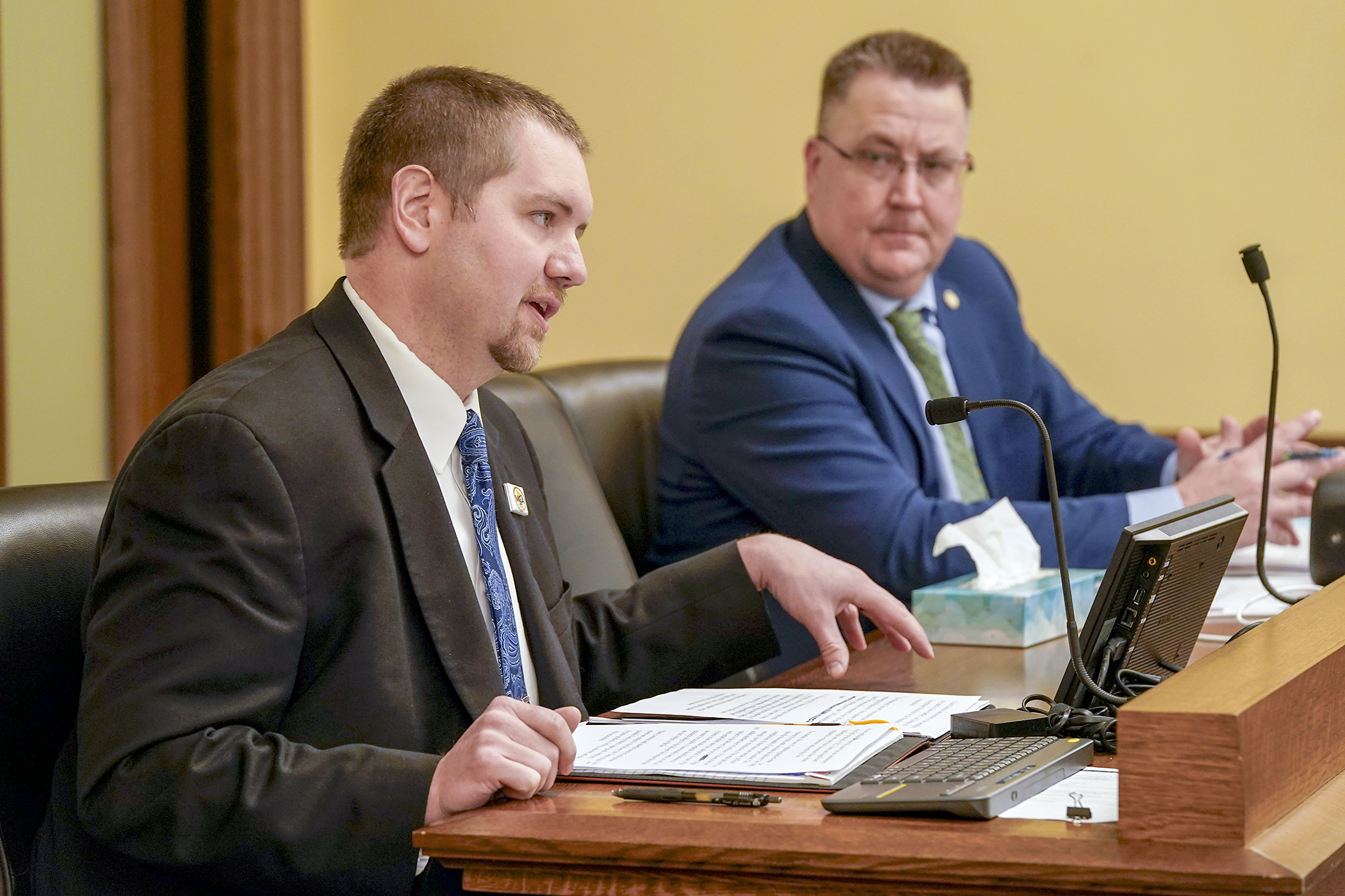Repeal of Social Security taxes hitches a ride on transportation bill

DISCLAIMER: On Jan. 24, 2025, the Minnesota Supreme Court held that 68 members are necessary to constitute a quorum of the House. This webpage may reflect proceedings that occurred before that decision was issued and are no longer active. See Simon v. Demuth, No. A25-0066 (Minn. Jan. 24, 2025) (consolidated with Hortman et al. v. Demuth et al., No. A25-0068).
Eliminating the tax on Social Security benefits seems to come up every year at the Legislature. But the transportation committee isn’t usually where you expect to find it.
Yet there it was Wednesday afternoon. That’s because it’s one of the changes to current law within HF5, sponsored by Rep. Jim Joy (R-Hawley). And that bill is mostly about fuel taxes and redistributing the revenue in the transportation advancement account.
But now it’s on its way to the House Taxes Committee, for the House Transportation Finance and Policy Committee approved it by a voice vote.
“This bill is making Minnesota affordable,” Joy said. “We campaigned two years ago promising the elimination of Social Security tax. That was not done. The Democrats did not do that. This bill will move that across the line, hopefully.”
In addition to exempting all Social Security benefits from the state’s individual income tax, the bill would:
- repeal the retail delivery fee, currently 50 cents on deliveries of $100 or more;
- halt indexing on the motor fuels tax, leaving the gasoline excise tax rate at 31.8 cents;
- re-allocate some transportation-related state and regional sales taxes; and
- direct the Department of Public Safety to perform an analysis of the motor vehicle registration tax.
“The last one is looking at the taxes on vehicles when you renew your license and comparing it to what we have with our surrounding states: North Dakota, South Dakota, Iowa,” Joy said. “I’m seeing it up in my district, near North Dakota. People are leaving. This bill will hopefully get people coming back to Minnesota and make them want to stay in Minnesota.”
The bill would also amend the distribution formula for transportation advancement account funds to eliminate the share that would go to counties in the Twin Cities metropolitan area. It would take what is currently 36% of the fund and redistribute it to the county state-aid highway fund, the large cities and small cities assistance accounts, and the town road account.
As for taxes on Social Security benefits: Currently, Minnesotans married filing jointly with incomes under $108,320 pay no taxes on such benefits, the same being true of single filers making less than $84,490.
The Department of Revenue estimates that full Social Security subtraction would reduce the state’s General Fund by $390.7 million in fiscal year 2026 and $415.7 million in fiscal year 2027. With the change, the department estimates that 211,700 returns would have an average reduction in tax of $1,845.
While lobbyists from the Minnesota associations representing grocers, retailers and propane spoke in favor of repealing the delivery fee, representatives from the League of Minnesota Cities, Minnesota Small Cities and Metro Cities all expressed concern that a new source of dedicated funding for roads — signed into law in 2023 — was being abandoned too soon, and that the elimination of fuel tax indexing would leave municipalities short on funding for fixing roads.
“I was a township supervisor for a while and I understand the challenges we have in our rural small cities and townships,” said Rep. Tom Murphy (R-Underwood). “We do need to have streams of money that are dedicated to this. … But there have to be better ways that we can do this than this delivery fee.”
Related Articles
Search Session Daily
Advanced Search OptionsPriority Dailies
Speaker Emerita Melissa Hortman, husband killed in attack
By HPIS Staff House Speaker Emerita Melissa Hortman (DFL-Brooklyn Park) and her husband, Mark, were fatally shot in their home early Saturday morning.
Gov. Tim Walz announced the news dur...
House Speaker Emerita Melissa Hortman (DFL-Brooklyn Park) and her husband, Mark, were fatally shot in their home early Saturday morning.
Gov. Tim Walz announced the news dur...
Lawmakers deliver budget bills to governor's desk in one-day special session
By Mike Cook About that talk of needing all 21 hours left in a legislative day to complete a special session?
House members were more than up to the challenge Monday. Beginning at 10 a.m...
About that talk of needing all 21 hours left in a legislative day to complete a special session?
House members were more than up to the challenge Monday. Beginning at 10 a.m...